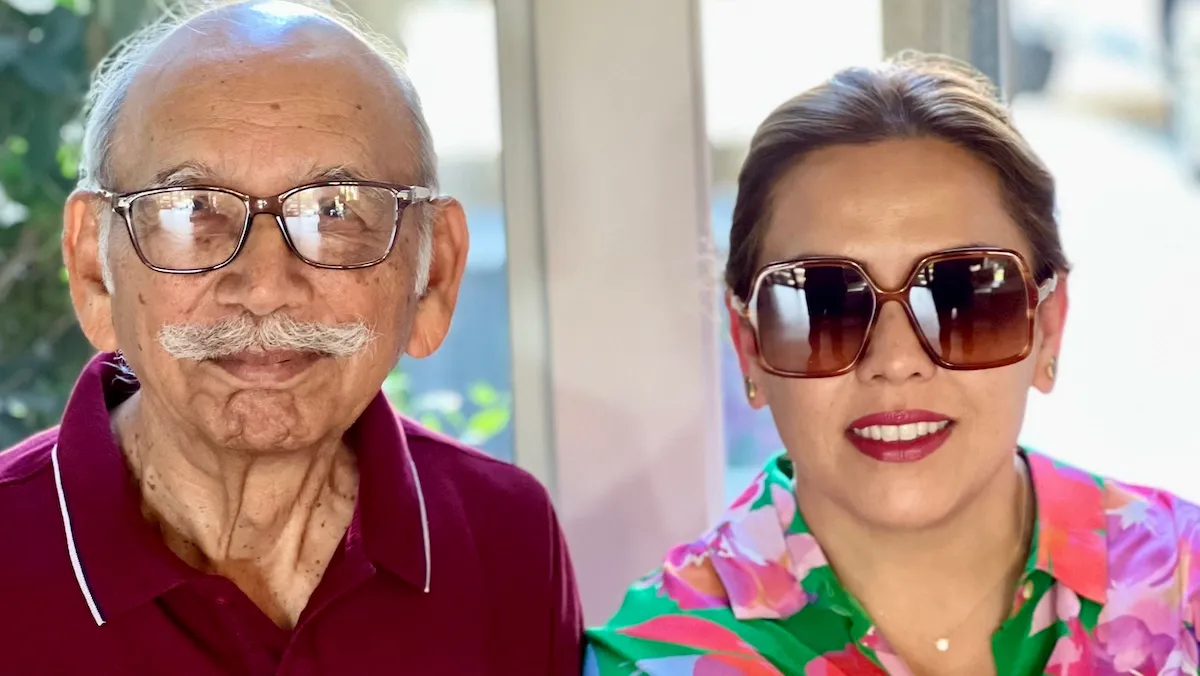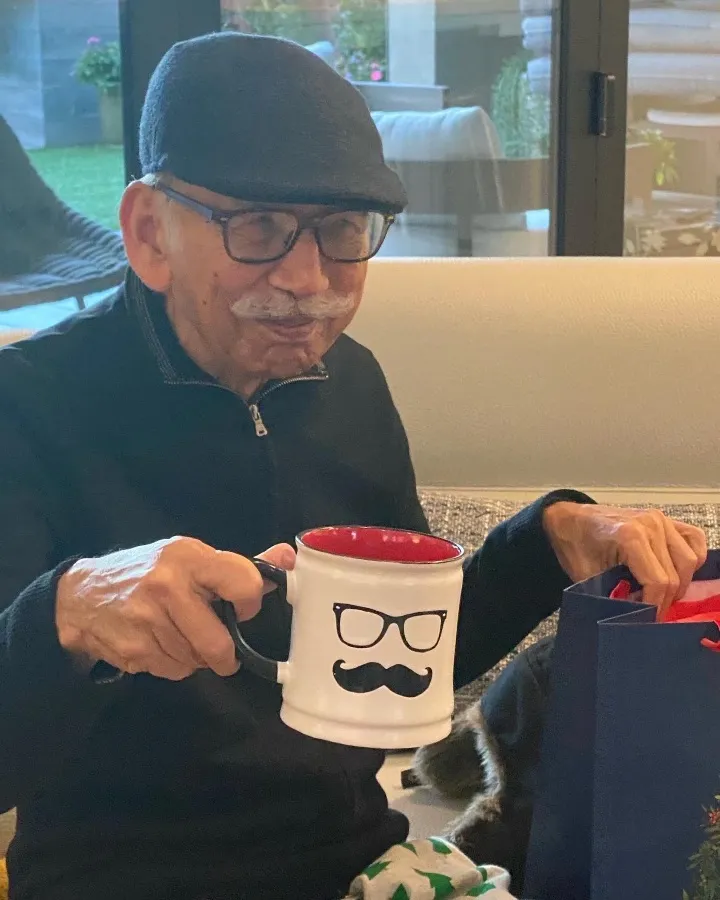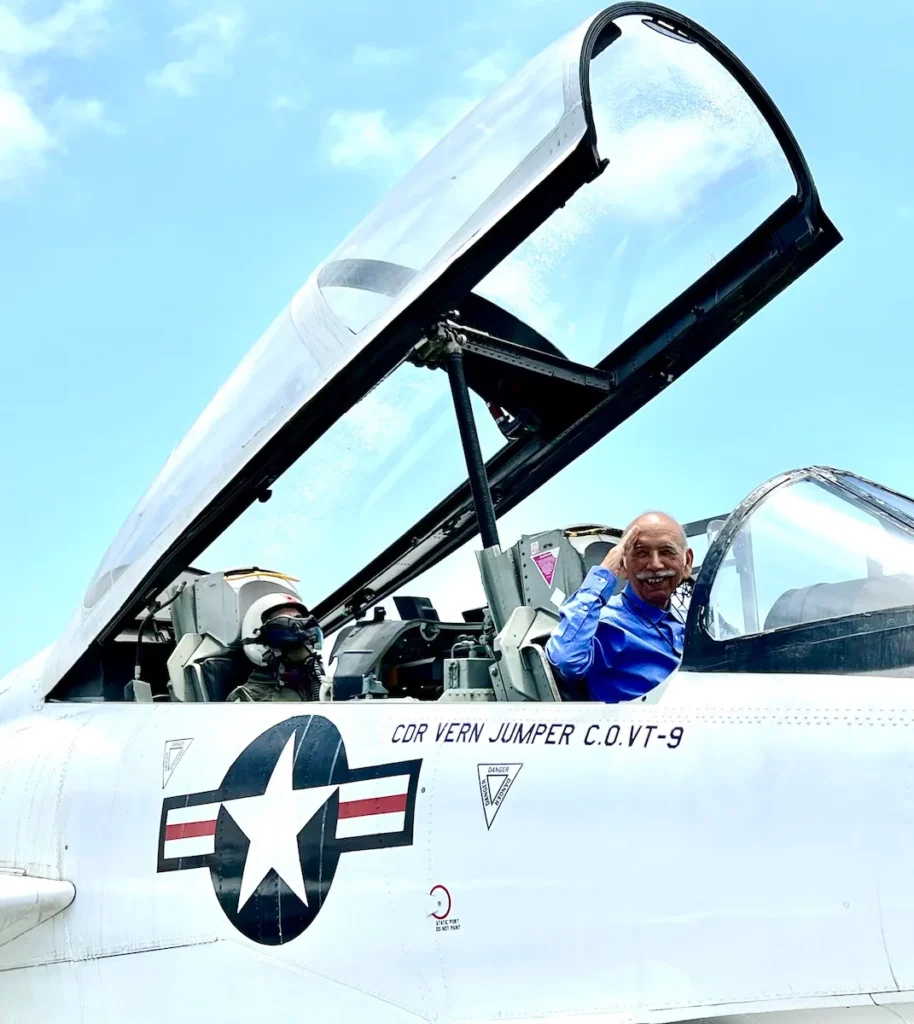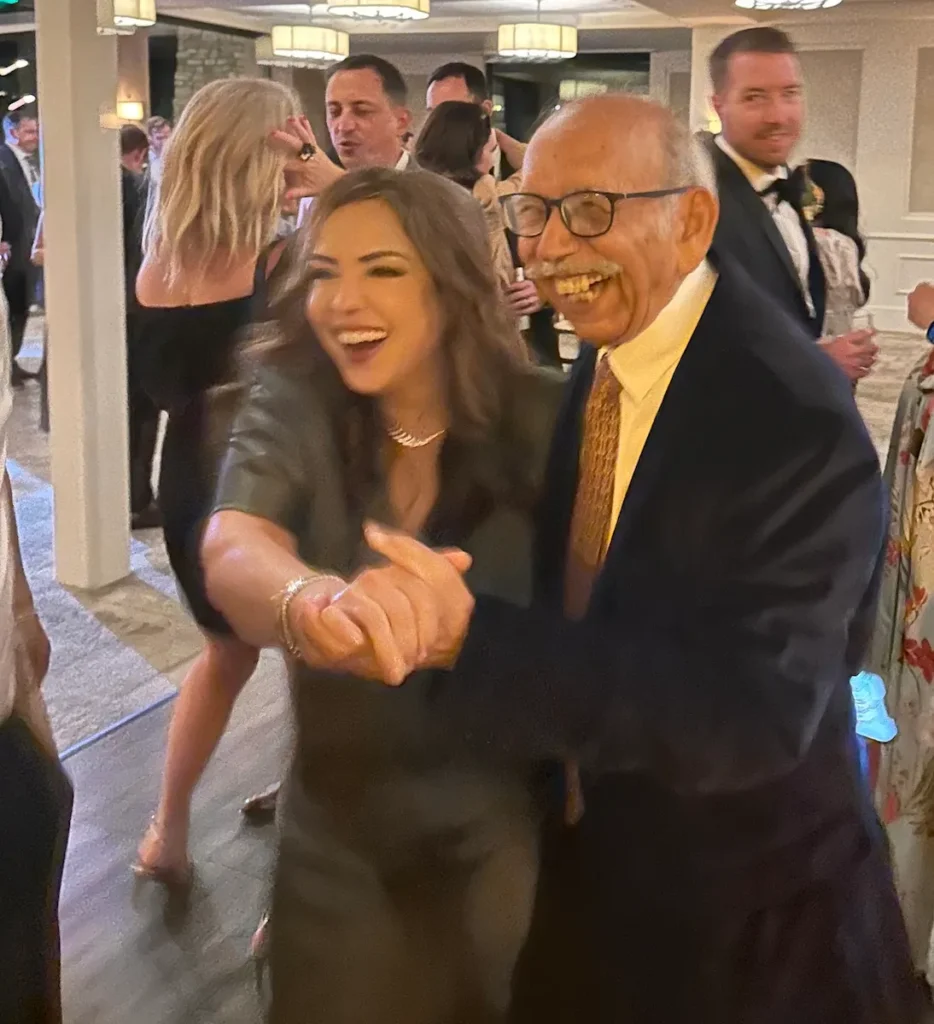“My dad is so disciplined, a little obsessive even. He’ll measure his blood sugar every morning and blood pressure early in the morning and again at night. He writes it down in a notebook. If his sugar level fluctuates, he will eat less. He self-monitors. If his sugar rises he’ll say I don’t like this, we need to see the doctor.”
Such discipline comes naturally to Jaswant Gulliya, a retired Indian Army colonel, said her 56 year old daughter Rashmi Goel She is the primary caregiver to her 82 year old, father who moved from India in 2017 to live with Goel and her husband in Costa Mesa, California.
“He is an active man,” said Goel. “Generally, he’s in good health, he walks twice a day.”
Like many South Asians, Colonel Gulliya has high blood pressure, cholesterol, and early onset diabetes — chronic conditions that are prevalent among South Asian immigrants as they age, according to a study of Asian Indian older adults by VJ Periyakoil and Shalini Dara at Stanford University School of Medicine.
A daily routine
The Colonel begins his day with a morning ritual of warm water, tea, and a shower. Goel makes breakfast for him — an egg and a slice of toast — every day.
“Then he goes for a walk to the library downtown before coming home for lunch,” she said. Following his afternoon nap, her father makes some chai, or tea, and waits for his daughter to come home from work: “He makes a cup of chai for me, and we have a chat, before Dad sets off on another walk.” After dinner together he retires to his room.
“It’s a very scheduled kind of life for him,” added Goel. “His routine matters to him. He’s fairly independent, being in the house on his own.”
Goel, a sales executive with a pharmaceutical company, leaves home early to get an hour at the gym before work. She travels across a wide swathe of Southern California meeting customers and gets home usually about six in the evening.
Planning ahead
Goel plans ahead to make sure her father’s needs are met. His daily routine is simple, focused on helping him stay as independent as possible.
She does her food prep on the weekends, cooking and refrigerating the Indian food he prefers, like dhal, chaval and rotis.
“I’ve always got freshly cooked meals in the fridge,” she explained, “so Dad just heats it himself in the microwave.” She looks after his cleaning and laundry and also accompanies him on healthcare visits.
There is no word for caregiving in any of the 26 Indian languages, but in desi households like Goel’s, the notion of duty of care is interwoven into relationships with parents.
Rashmi Goel became a full-time caregiver to her father six years ago, when he moved to the U.S. after his wife passed away in India. In South Asian families like hers, caring for aging parents is a cultural norm. As long as they are fit and able, adult children will rarely place their parents in care homes, shouldering the burden of caregiving themselves.
Finding caregivers
Finding trained caregivers who can provide culturally congruent care is difficult. Most families cannot afford the high costs of paid caregiving, or don’t qualify for eligibility requirements for assisted living through Medicare and Medicaid.
The shortage of trained caregivers from within the community and the lack of facilities that offer culturally congruent care means that as parents age, these tasks fall to adult children.
In the years before their mother died, Goel and her sisters, who also live in the U.S., took turns traveling to India for up to a month at a time, to care for their parents as their mother’s health deteriorated. The demanding experience took a toll on the three siblings.
“We made 11 trips between the three of us in four months. In the interim, my sister had to quit her job,” said Goel. “It was challenging for us to care for my mom, who was in the hospital ICU after a triple bypass surgery.”
The sisters decided to bring their father closer to them knowing how impossible it was to care for an aging parent from 8000+ miles away. “We saw how difficult it was to manage things from afar,” she continued.
Colonel Gulliya lives between Goel and his younger daughter throughout the year.
“We split his time as best as we can,” she added.
The toll of loneliness
Goel is extremely protective of her father, who was deeply affected by his wife’s traumatic final few months.
“My mother had high blood pressure and uncontrolled diabetes which caused neuropathy. All these things which made her sedentary led to a triple bypass,” she said.
“She had difficulty breathing, she was bedridden. She had a stroke in the recovery room and was intubated the whole time. Then she had to have dialysis and after that she got shingles,” Goel continued. “It was just one thing after the next. She couldn’t talk. She had bed wounds. She couldn’t get out of it. After four and a half months of that struggle, we decided to let her go.”
The lonely evenings that Colonel Gulliya endured after his wife passed prompted his move. Initially, he found refuge with friends and his community.
“But a few months after my mom’s passing, he realized that the evenings were the most difficult,” said Goel. “After five o’clock, everybody went home to their families. He told me, ‘All I did was come home, read a little, watch TV, eat dinner, go for a walk, then go to bed.’ Those five, six hours were grueling. He was so lonely, you know?”
A foreign country
Colonel Gulliya was in his 70s when he left his lifetime home to move to a strange country.
Nevertheless, Goel said, he handled the transition bravely: “You know, he’s a very resilient man, being in the Army. Having that background, he survives under any situation.”
Many South Asian elders immigrate to the US to be reunited with their adult children and spend old age in their care, reports the Stanford study by Periyakoil and Dara. This cohort, which has typically lived their entire life in India up to that point, is at high risk of being isolated and lonely due to factors like language barriers, lack of acculturation or independent transport.
Finding friends
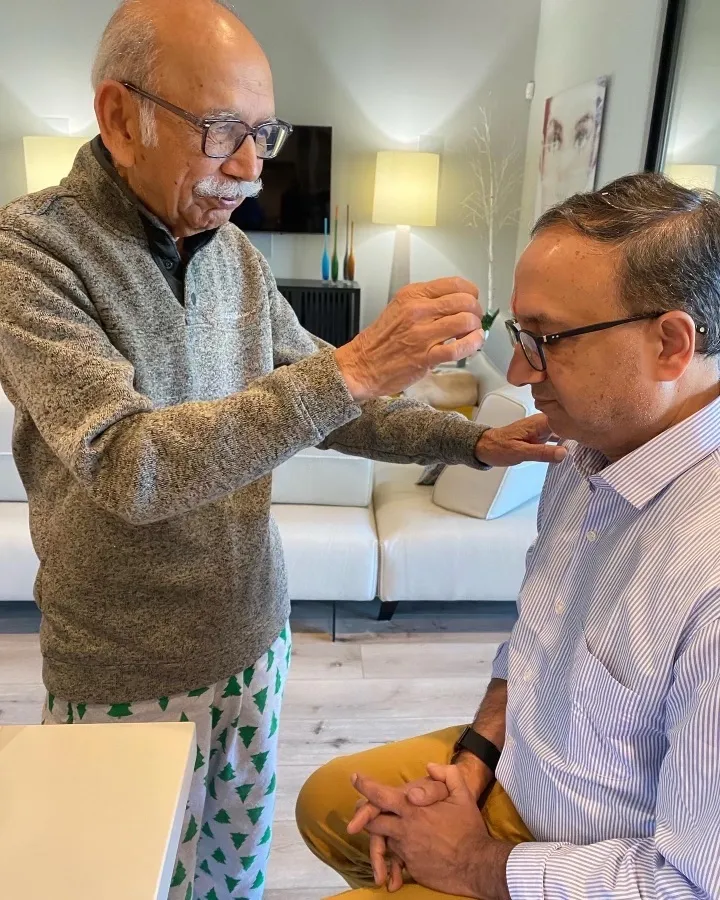
Concerned about her father’s lack of social interaction outside of the family, Goel reached out to her network of healthcare professionals to find out about community activities.
“My father was really missing out on meeting friends,” she said.
A nurse practitioner introduced her to The Senior Center in Irvine. She signed her dad up.
“They meet on Friday afternoons. You pay $2. You can make a sandwich for yourself. Sometimes there’s a lecture or card games,” said Goel.
The Colonel now has a new circle of friends among the locals and Indian-origin seniors at the Senior Center. They check in on each other by cellphone or make plans to attend weekly activities.
“They’ll reach out and say, I’m not going this time. Are you?” said Goel.
Finding transport
Initially, Goel or her husband would drive the Colonel to the Center.
Then, they discovered the Orange County Transit Association shuttle service, which “serves seniors on Medicare, or who need help going to doctor appointments,” explained Goel.
After an assessment of his mobility issues, vision, and health, her father qualified for the transport service, she continued: “They checked if he could stand in the sun and wait for a bus.”
For the last four and a half years, Colone Gulliya has ridden the shuttle service to the Irvine Senior Center which is an hour away. His daughter schedules each Friday morning pick-up.
“If the shuttle is not working, the service gets him an Uber,” said Goel, who is grateful for the freedom the service affords both her and her dad. “I don’t have to worry. We know he’s in safe hands.”
Aging in America
As he ages, the Colonel is getting a little forgetful.
“He’s left the gas cooker on a few times without realizing it, after taking the pot off the stove. But he’s just very determined,” said Goel. “Sometimes he asks me, ‘How come you’re tired? Your father is 82 and still going strong.’ Makes me feel bad about complaining.”
Although her dad is proficient in English, she still accompanies him to doctor’s visits because he has trouble deciphering accents.
“My dad speaks English well, but he has an Indian accent. His doctor is from Vietnam. He too is an immigrant; he also has an accent. It’s hard for my dad to understand him and for him to understand my dad,” she explained. “So, I usually go along because I want to make sure Dad doesn’t forget to ask the doctor the questions he’s concerned about.”
While Colonel Gulliya misses the free healthcare he enjoyed as a soldier in the Indian army, he is very impressed with the blood work that he has had done in the U.S.
“In India, they use such a thick, bigger gauge needle,” Goel said. “It hurts so much. They use such a thin needle here. Wow, it didn’t hurt even a bit!”
A few months ago, the family installed cameras in the house to make sure her father was okay when she’s at work.
“He’s always in the back of my mind,” continued Goel, who takes her father along on local trips and social gatherings.
He recently joined her on the dancefloor at a family wedding. “You get his spirit,” she said, “full of life and living in the moment.”
This article was written with support from the EMS – CalGrows Fellowship Program.
The fellowship aims to spotlight and celebrate home health care providers as essential — unsung heroes — to the health and wellbeing/quality of life of older adults and people with disabilities, a population that represents out of four Californians as of 2030.
If you are interested in becoming a professional caregiver in California, the backbone of California health care, to earn up to $6,000 for learning and using new skills. However, time is running out for caregivers to sign up, as the program ends in August. Caregivers can sign up for the program online at calgrows.org, by phone at (888) 991-7234 or by email at help@calgrows.org.



